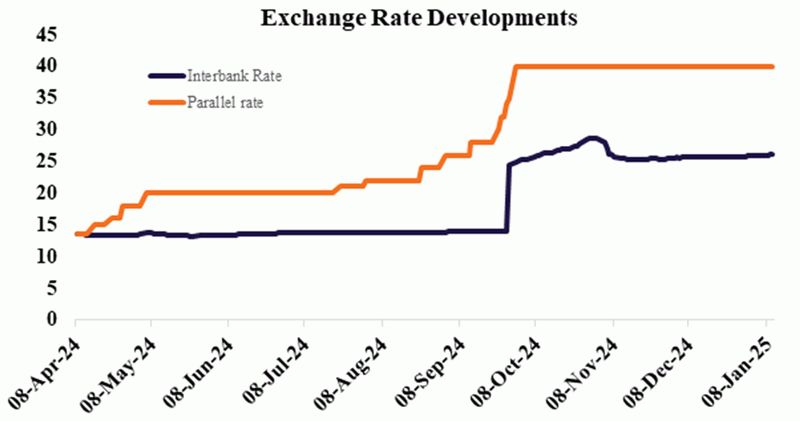
CBZ Holdings Limited (CBZ), one of Zimbabwe’s leading financial institutions, is pushing for a resolution in the ongoing dispute between ZB Financial Holdings (ZBFH) and Transnational Holdings, as it seeks to acquire the latter to bolster its balance sheet for regional expansion, the Zimbabwe Independent can reveal.
Last month, Transnational Holdings, the second-largest shareholder in ZBFH, warned of an imminent split from the group, citing ZBFH’s refusal to honour a 2016 agreement that would increase its stake in ZBFH to 33%.
Transnational Holdings claims it is still owed an 8,35% stake to reach the agreed 33% shareholding.
The 2016 agreement followed government intervention in a long-standing dispute in which Transnational Holdings accused the Reserve Bank of Zimbabwe of secretly selling its 50,99% stake in Intermarket Holdings Ltd (Intermarket) to ZBFH, allegedly violating the company’s Memorandum and Articles of Association.
ZBFH acquired Intermarket in 2006/2007, gaining control of key assets such as ZB Reinsurance Limited, First Mortgage Investments (Pvt) Limited, Intermarket Banking Corporation, ZB Life Assurance Limited and ZB Building Society.
This dispute has surfaced as ZBFH reported a US$550 million balance sheet last year, with a market capitalisation of US$110,17 million as of Monday.
In an interview, CBZ group chief executive officer Lawrence Nyazema confirmed that the ZBFH acquisition deal is currently under review by the Competition and Tariff Commission (CTC).
He said it was important to resolve the shareholder dispute for the deal to proceed smoothly.
- Chamisa under fire over US$120K donation
- Mavhunga puts DeMbare into Chibuku quarterfinals
- Pension funds bet on Cabora Bassa oilfields
- Councils defy govt fire tender directive
Keep Reading
Nyazema said they wanted to purchase ZBFH primarily for its non-banking units.
“Yes, the ZB transaction is before CTC. Again, we will wait to see the response from CTC, and find out what’s best,” he said.
“We either continue with the transaction or we vary some aspects of it. In terms of the shareholder issues, yes, we have been aware of what has been playing out, even in the public domain.
“Our view is that a negotiated settlement is always best when it comes to these issues. You will be aware that there are legacy issues from the first wave where we had some bank closures and problems at financial institutions,” Nyazema added.
He said CBZ’s primary interest in ZBFH lies in its insurance and property units.
“The only difference between FMHL (First Mutual Holdings Limited) and ZB is that ZB is also into banking. But, I would say they have got a medium-sized banking institution. Our main attraction is not really banking, but the other business units, which is your insurance, which is your property,” Nyazema said.
“You will be aware that ZB are the largest shareholders in Mashonaland Holdings. And I suppose naturally the pushback that would be coming from a competition perspective is to say, are you not going to create an animal that is too huge?
“Yes, it may be big by Zimbabwean standards, but by regional standards it will still remain small. So, I give the example of Standard Bank of South Africa, which is perhaps your largest pan-African bank.”
CBZ recently completed the acquisition of First Mutual Holdings Limited (FMHL), increasing its shareholding to 36,35% in September 2023, and made a mandatory offer for the remaining shares.
The FMHL acquisition was part of CBZ’s strategy to strengthen its balance sheet, which stood at US$1,35 billion last year.
Nyazema drew a comparison with Standard Bank of South Africa, noting that its balance sheet is over 100 times larger than CBZ’s.
“So, when you then go into Mozambique, into Botswana, and you are trying to compete with the Standard Bank of South Africa, you cannot compete because they are significantly bigger,” he said.
“So for us, yes, from a Zimbabwe perspective, it may appear as if we would be a giant, but we are a big fish in a very small pond.
“And we are saying, as we jump from the pond into the ocean, let’s go there with the right size. That will make our business ability to survive more enhanced. You will be aware of Zimbabwean businesses that have gone into the region and have been wiped out.”
Nyazema said Zimbabwean businesses that have expanded regionally often struggle because they lacked sufficient capital, skills, and strong balance sheets.
“That’s the lens through which we view these transactions. We have got a lot of examples in the banking sector, and we are saying one of the problems that were there is they went there without enough capital, they went there without enough skill and with balance sheets that were significantly small. So that's how we are seeing the transactions from our perspective.”










